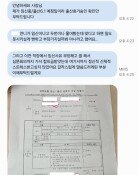Obama urges N. Korea to follow Myanmars example
Obama urges N. Korea to follow Myanmars example
Posted May. 09, 2013 05:05,
U.S. President Barack Obama has urged North Korea to take notice of events in countries like Burma (Myanmar), which, as it reforms, is seeing more trade and investment and diplomatic ties with the world, including the United States and South Korea. He made the remark during a joint news conference after the first summit with South Korean President Park Geun-hye, pinpointing the example of Myanmar to the young North Korean leader Kim Jong Un, who inherited power after his father, Kim Jong Il, died in December 2011.
After decades of iron-first military rule, Myanmar changed its course as Thein Sein became president in March 2011. President Sein released pro-democracy leader Aung San Suu Kyi from house arrest, held a free election, and accepted a nuclear inspection by the International Atomic Energy Agency. Last year, the U.S. president pledged 170 million U.S. dollars in aid and promised to normalize diplomatic relations with Myanmar. Since then, the Southeast Asian country has received foreign investment worth more than 40.4 billion dollars. North Korea should take Myanmars course, rather than pursuing economic and nuclear development at the same time.
In the summit with President Park Geun-hye, the U.S. president said in a clear tone that he supports President Parks North Korea policy dubbed the Korean Peninsula trust-building process, stressing that the days are gone when the North creates a crisis to receive compensation. The two leaders said in one voice that they will respond sternly to Pyongyangs provocations, while leaving the door of dialogue open. The North should not miss this opportunity.
In the latest summit, the South Korean and U.S. leaders have adopted a joint declaration marking the 60th anniversary of the two countries alliance. In the declaration, they appreciated the positive results of the alliance made great contribution to peace and prosperity on the Korean Peninsula and in Northeast Asia and vowed to expand the scope and frame of bilateral cooperation. The Seoul-Washington alliance played a great role in enabling South Korea to rise from the ashes of the 1950-1953 Korean War to one of major economies in the world and from a recipient of aid to a donor. The alliance should now further develop into a global value alliance that would contribute not only to peace on the peninsula but also to the prosperity of the humankind.
Even the best vision can be meaningful when it is materialized through concrete policies. For President Parks Korean Peninsula trust process and the Seoul process, her vision to promote peace in Northeast Asia, to succeed, Seoul needs Washingtons full-fledged cooperation. South Korea should also actively cooperate with the U.S. in global issues such as responses to terrorism, atomic energy safety and the spread of weapons of mass destruction.
South Koreas opposition parties criticized the summit for having failed to propose the two countries concrete plans to attract North Korea to dialogue. Changing the North would be possible only through continued pressure and persuasions. Seoul and Washington should exquisitely draw up a strategy to put the two leaders agreements into practice.
Headline News
- N. Korea launches cyberattacks on S. Korea's defense companies
- Major university hospital professors consider a day off each week
- Italy suffers from fiscal deficits from ‘Super Bonus’ scheme
- Inter Milan secures 20th Serie A title, surpassing AC Milan
- Ruling and opposition prioritize spending amid tax revenue shortfalls







